
CAT’s Graduate School of the Environment has been teaching completely via distance for two months now. Alis Rees, Graduate School Marketing Officer, caught up with three students from our postgraduate courses to hear how they’ve been finding the experience of studying via distance learning.
The unique structure of our sustainability focused postgraduate courses allows us to offer students the option to study on-site, via distance learning, or through a mix of both, which provides flexibility to students from a wide range of backgrounds.
In response to the rapidly changing COVID-19 situation the Graduate School at CAT decided to move to complete distance learning on 17 March, 2020.
With the majority of modules already available via distance learning, our students have been able to continue their postgraduate learning with us, and in the absence of our on-site teaching, we’re using this as an opportunity to further develop our distance learning offer and teaching materials.
Student experience of distance learning
Becki Pritchard
MSc Sustainable Food and Natural Resources student on the Ecosystems, Land use, Water and Waste Management module.
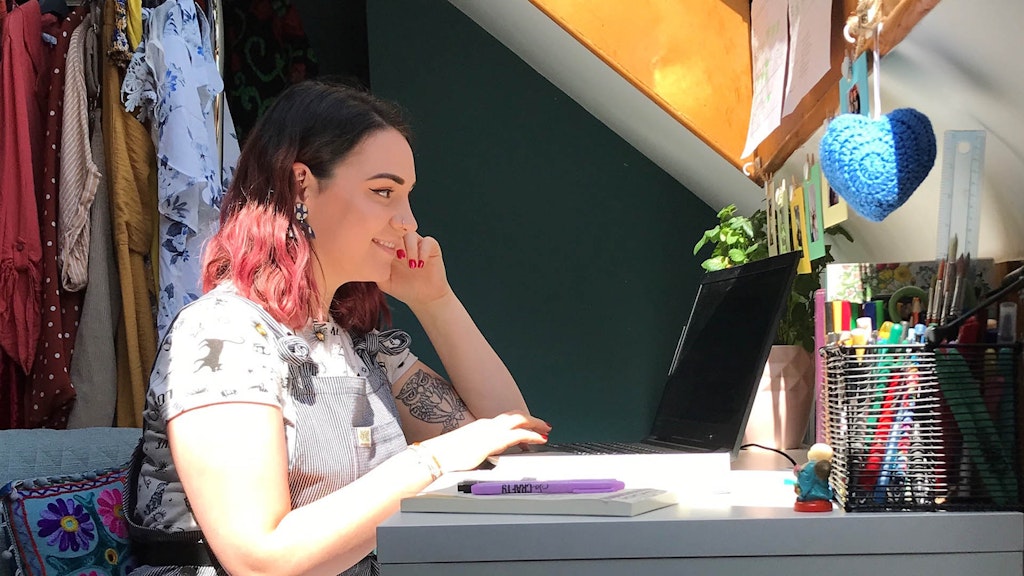
Previously, I chose to do all of my modules on-site at CAT, as I know I generally learn much better when taught in person. I’ve found this is because I can ask questions as and when I need to, there’s a schedule to keep me on track and I’m surrounded by peers to have discussions with about the module material. I was therefore slightly worried about transitioning to Distance Learning (DL) for the rest of my modules.
However, since completing the Ecosystems module in April, I cannot praise the staff at CAT enough for aiding the transition.
The Student Support team and lecturers were more than happy to assist in answering questions, just as they are in person. We were also given a timetable to follow, which helped me to keep on track; I also used a daily desk planner to schedule in my breaks, exercise and meal times to combine home life with study life! My brilliant course mates offered support, interesting discussion points and shared their study tips* via Skype seminars and messages. This extended the real community feeling we all enjoy at CAT. Overall, the transition from on-site to DL has been smoother than expected and I’m already looking forward to the next module.
*My top tip would be to try sitting at a designated workspace whenever possible. It’s very tempting to watch lectures in bed with a hot chocolate but I found I was less productive and less engaged when not at my workspace!”
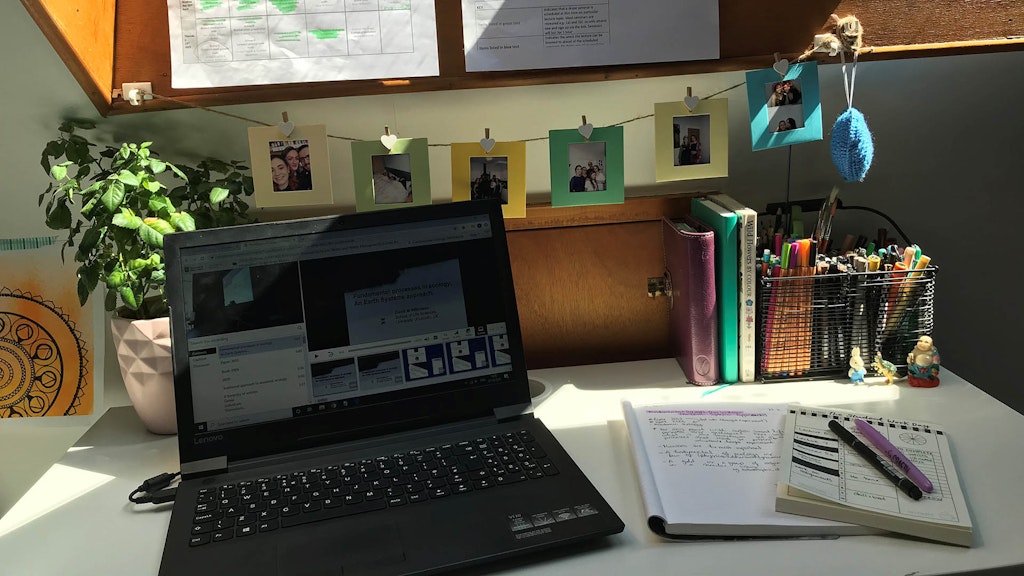
Kevin Horne
MSc Sustainability in Energy Provision and Demand Management student on the Energy Generation from Solar Module module.
I live 40 minutes away from CAT and have taken three modules on-site, travelling each day from home, often driving back late at night at the end of the day. My fourth module was the first to be run entirely online using Skype and the Virtual Learning Environment and I was pleasantly surprised as it was well organised and, although intensive, made for a shorter day.
One of the practical exercises we were due to take early on in the week didn’t work very well over the internet, so Alan Owen managed to redo it completely in his garden later in the week to great success. I have two children who are currently at university and who are not finding the experience of studying remotely quite as easy as I am. My son is studying a musical subject and has had mostly practical assessments changed to essays at short notice and without much flexibility from the university. My daughter studies History and cannot access some physical archives that she needs. I think that remote study has worked well at CAT because they are a flexible organisation with fairly small groups.
As I write this, I am taking part in my second online module which is now using Zoom, rather than Skype, and is working even better as we all get more used to the technology. I have found that we can ask questions whenever we need to, and the content can be presented easily online without any significant restrictions.
All in all my experience so far has been very smooth, well organised and easy to follow and I would like to thank the tutors and support staff behind the scenes for their hard work in making sure as students we have all the help we need during this difficult time.
Sandy Stevens
MSc Sustainability and Behaviour Change student on the Communicating Transformational Social Change module.
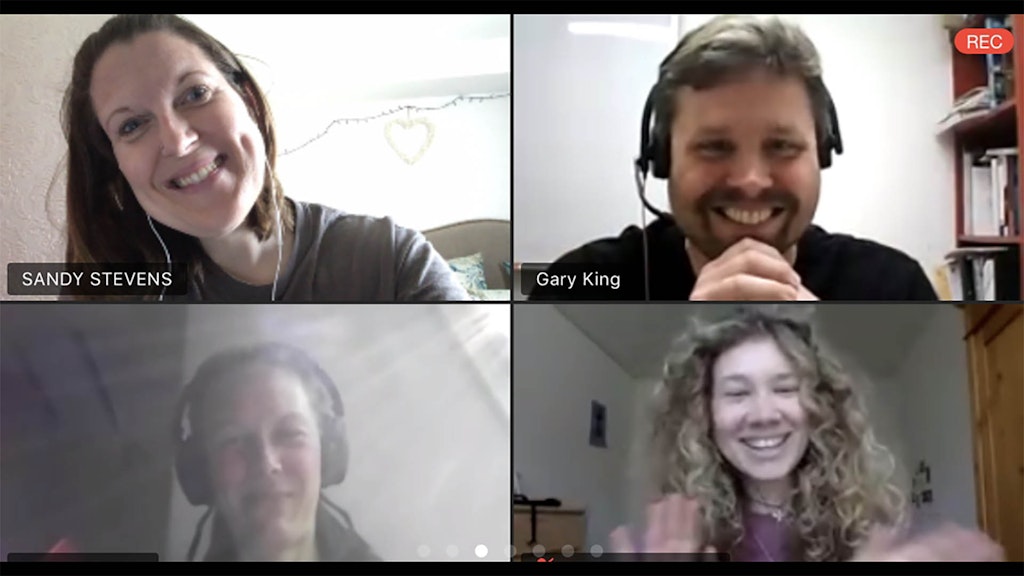
Though I envisaged the module to be very different due to not being face to face on-site, it was actually great.
All of the lectures were excellent, but a few stood out for me. We had a wonderfully thought-provoking Leadership session with Beth McManus and Gary King, considering Creative Dialogue and the concept of thinking together to create something, since “when we think alone, we aren’t challenged”. A metaphor of a seed was used conveying the fact that it’s simply an aperture, dependant on many other elements to become a tree, thus reminding us of our need for others.
Alex Randall’s session on climate change communication was also wonderful; my take away was how I might have conversations around climate with non-judgment, actively listening to those I’m seeking to engage, while also being sensitive to their own personal challenges possibly preventing them from engaging.
Finally, Jamie & Lor Bird’s session entitled Holding the present, imagining the future, was a true eye-opener. We delved into our own complex emotional responses to climate change using art, giving us an awareness once again of the need to be sensitive to others’ feelings surrounding these issues.
I really must praise the module leaders Paul Stevens and Ruth Stevenson. Their delivery and positive manner online throughout the module put our minds at rest, given the current uncertainty and challenges we’re experiencing. Having sessions spread over a month was also a welcome change (rather than the onsite lectures format over just a week) and allowed us plenty of reflection time throughout.
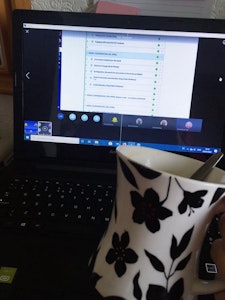
Want to learn more about studying at CAT?
If you would like to find out more about our distance or blended learning options or more about our courses why not join Graduate School staff on one of our Virtual Open Days.
Alternatively, get in touch with Alis Rees via email gsmo@cat.org.uk or telephone 01654 705953 for more information.
- Graduate School
- Education
Related Topics
Related Pages
Related news

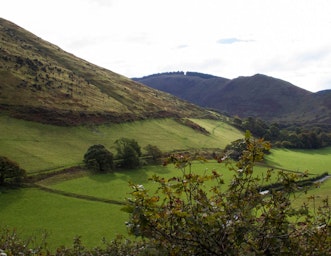
CAT Conversations: Sandy Stevens, CAT graduate
17th April 2025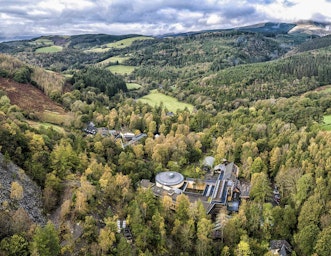
CAT Student Bursaries Announced for 2025
30th January 2025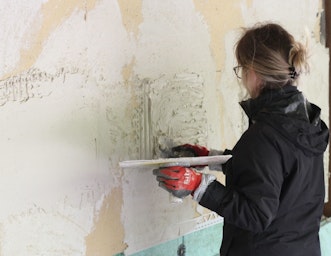
Ready for retrofit
29th January 2025Enews Sign Up
Stay up-to-date with the latest news, events and activities from CAT by signing up to our Enews and following us on social media.
